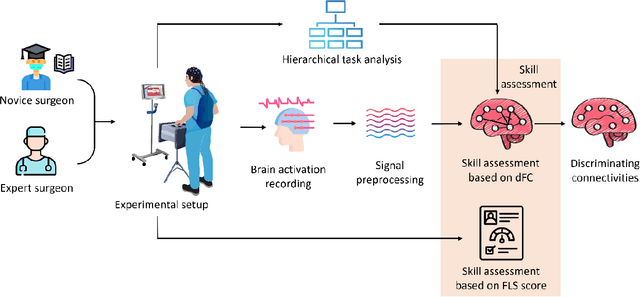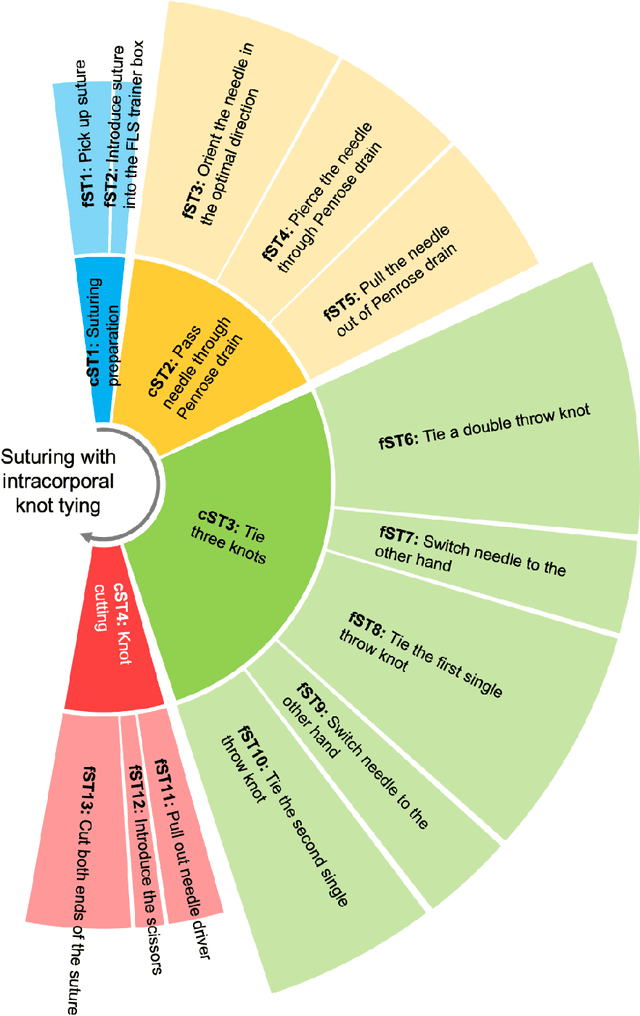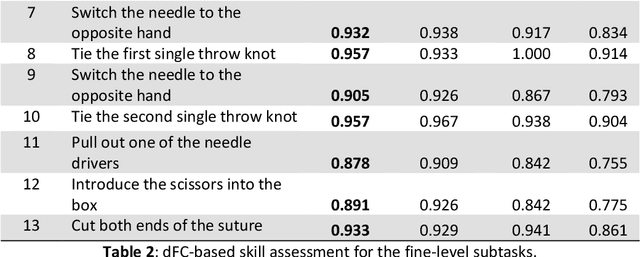Dynamic directed functional connectivity as a neural biomarker for objective motor skill assessment
Paper and Code
Feb 19, 2025



Objective motor skill assessment plays a critical role in fields such as surgery, where proficiency is vital for certification and patient safety. Existing assessment methods, however, rely heavily on subjective human judgment, which introduces bias and limits reproducibility. While recent efforts have leveraged kinematic data and neural imaging to provide more objective evaluations, these approaches often overlook the dynamic neural mechanisms that differentiate expert and novice performance. This study proposes a novel method for motor skill assessment based on dynamic directed functional connectivity (dFC) as a neural biomarker. By using electroencephalography (EEG) to capture brain dynamics and employing an attention-based Long Short-Term Memory (LSTM) model for non-linear Granger causality analysis, we compute dFC among key brain regions involved in psychomotor tasks. Coupled with hierarchical task analysis (HTA), our approach enables subtask-level evaluation of motor skills, offering detailed insights into neural coordination that underpins expert proficiency. A convolutional neural network (CNN) is then used to classify skill levels, achieving greater accuracy and specificity than established performance metrics in laparoscopic surgery. This methodology provides a reliable, objective framework for assessing motor skills, contributing to the development of tailored training protocols and enhancing the certification process.
 Add to Chrome
Add to Chrome Add to Firefox
Add to Firefox Add to Edge
Add to Edge